The seminar took place in both direct and online formats, with the participation of leaders of units under the Ministry of Education and Training; experts, representatives of the Ministry of Health; Ministry of Foreign Affairs; Ministry of Justice; Ministry of Finance; Ministry of Industry and Trade; Ministry of Labor, War Invalids and Social Affairs; Ministry of Culture, Sports and Tourism; Government Office ; Association of Vietnamese Universities and Colleges; representatives of a number of Departments of Education and Training and universities.
The seminar was held in a combination of live and online formats.
Speaking at the opening of the seminar, Deputy Minister of Education and Training Hoang Minh Son said: Implementing Resolution No. 29/NQ-TW on comprehensive fundamental innovationof education and training, in 2016, the National Education System Framework and the Vietnam National Qualifications Framework (VQF) were issued by the Prime Minister under Decision No. 1981/QD-TTg, 1982/QD-TTg.
Then, the National Assembly issued the 2019 Law on Education; the Law amending and supplementing a number of articles of the 2018 Law on Higher Education and there were some points and contents that were not completely consistent between the 2 Decisions and the provisions of the Law.
In addition, the 8-year implementation of the national education system framework and the national qualifications framework in Vietnam shows that there are some shortcomings related to connectivity and streaming in education, comparison with the qualifications frameworks of other countries, especially the standards issued by UNESCO; difficulties in recognizing qualifications, diplomas, and qualifications for students to study abroad...
According to the 2024 Work Program of the Government and the Prime Minister (Decision No. 53/QD-TTg), the Ministry of Education and Training is assigned to draft the Decision and submit it to the Prime Minister for approval of the Framework for the structure of the national education system (replacing Decision No. 1981/QD-TTg) and the Vietnam National Qualifications Framework (replacing Decision 1982/QD-TTg).
“This is an opportunity for us to review and evaluate from practice, from legal documents, especially in the provisions of the Law, to see what shortcomings need to be amended accordingly,” the Deputy Minister emphasized, noting that the amendment must ensure connectivity within the system as well as compatibility with regional and international standards.
Deputy Minister of Education and Training Hoang Minh Son delivered the opening speech at the seminar.
Reporting at the Workshop on the reasons and necessity of amending the National Education System Framework and the Vietnam National Qualifications Framework, Deputy Director of the Department of Higher Education (GDĐH) Nguyen Thi Thu Thuy said: Decision No. 1981/QD-TTg approving the National Education System Framework is regulating the input standards, study time and continuing study opportunities of all levels and training qualifications of formal education and continuing education in the education system.
However, some elements in the current National Education System Framework lack integration, unity, connectivity and do not provide good support for education streaming after secondary school.
In addition, the design of the Vietnamese National Qualifications Framework needs to be consistent with international frameworks and qualifications standards to facilitate the recognition of qualifications and support international mobility for students and workers; it needs to ensure consistent application in different education and training sectors and ensure the participation of stakeholders in promoting quality assurance and efficiency mechanisms.
Higher education institutions all refer to the Vietnamese National Qualifications Framework when developing output standards for training programs, but there is still a lack of connection with the requirements of working skills from the labor market. Quality assurance conditions also need to be reviewed, standardized, and closely managed and monitored by competent state management agencies to help recognize training levels with ASEAN countries.
Deputy Director of the Department of Higher Education Nguyen Thi Thu Thuy reported at the seminar.
"The national education system must be designed in the direction of ensuring integration, ensuring connectivity, unity, and supporting post-secondary education. All levels of the national education system need to be designed with 3 criteria: Program orientation; level of completion; ability to transfer to a higher level," Deputy Director Nguyen Thi Thu Thuy informed.
With the Vietnamese national qualifications framework, the Drafting Committee proposes to classify and standardize competencies, minimum learning volume and diplomas and certificates in accordance with the levels of the national education system. At the same time, establish an effective connection mechanism between the requirements for human resource quality of the employer and the system of training levels. As a basis for developing training program standards, developing quality assurance policies and improving the quality and effectiveness of human resource training. Create a mechanism for connecting training levels, building a learning society and lifelong learning.
Along with that, establish a relationship with the national qualifications framework (NQFs) of ASEAN countries through regional and international qualifications reference frameworks as a basis for mutual recognition of qualifications.
At the seminar, experts and representatives of relevant units discussed outstanding issues and gave their opinions on the contents of the National Education System Framework and the Vietnam National Qualifications Framework. Among them, the issues that received many opinions were related to ensuring connectivity and streaming in the education system; unity and integration; specialized training; equivalence recognition; the system of diplomas and certificates...
Delegates contributed their opinions at the seminar.
Thanking the opinions and contributions of experts and delegates attending the discussion, Deputy Minister Hoang Minh Son emphasized: This is a difficult and complicated task, requiring high consensus from relevant parties, and short-term and long-term steps are needed to overcome shortcomings and perfect the new look of the National Education System Framework and the Vietnam National Qualifications Framework.
The Deputy Minister noted that in order to implement better, the Drafting Committee needs to have an approach, clearly defining the purpose of the National Education System Framework and the Vietnam National Qualifications Framework, on that basis proposing principles, listening to opinions of relevant ministries and branches from past practices, future trends, laws, and international comparisons.
The Deputy Minister requested the Drafting Committee to seriously absorb comments and suggestions to complete the evaluation report first, thereby building quality drafts.
In the coming time, the Ministry of Education and Training will hold a meeting with experts, the Drafting Committee, and the Editorial Team to give opinions on receiving and explaining comments to complete the draft Decision; Submit to the Prime Minister for consideration and signing of the Decision.
Source: https://moet.gov.vn/tintuc/Pages/tin-tong-hop.aspx?ItemID=9479


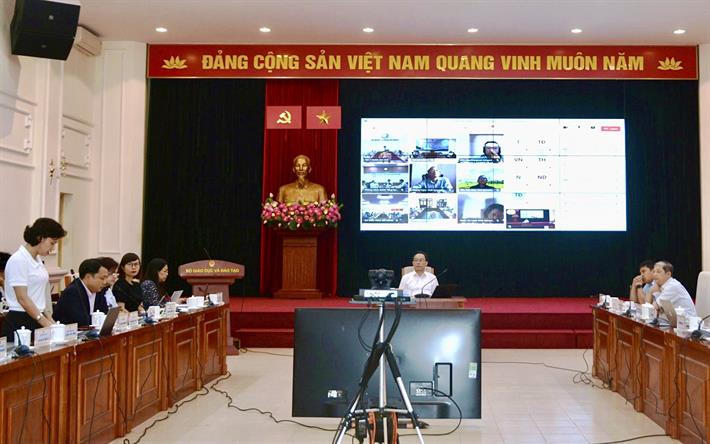
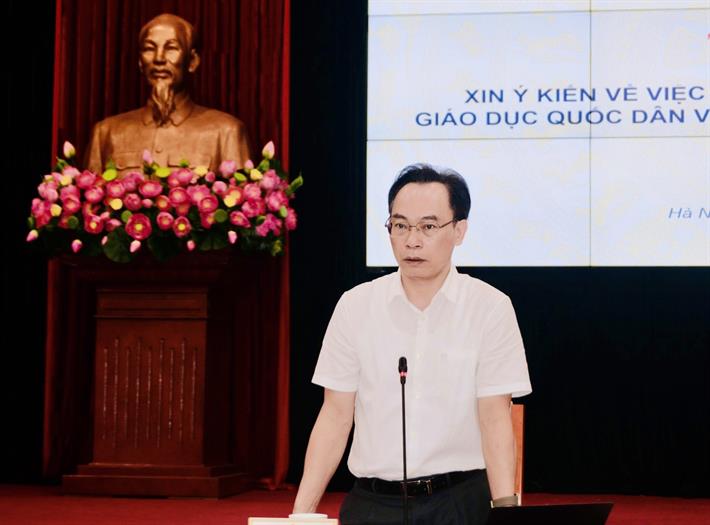
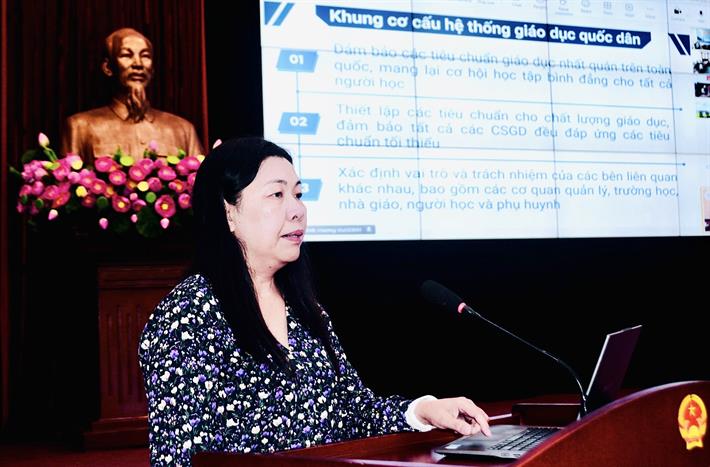
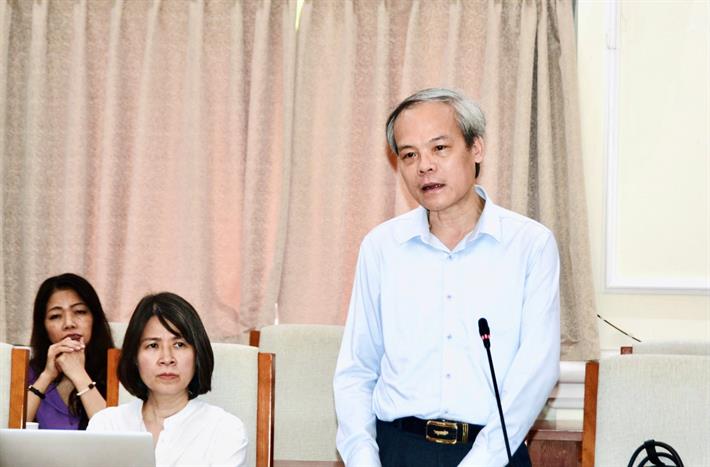

















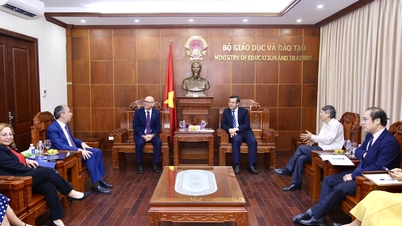
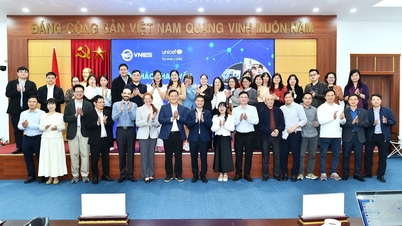
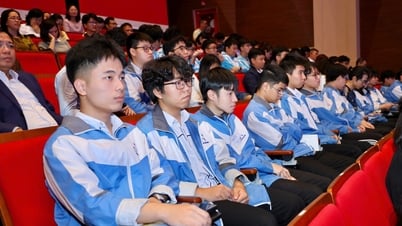


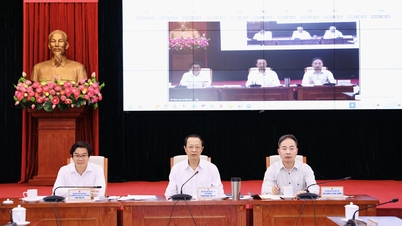





















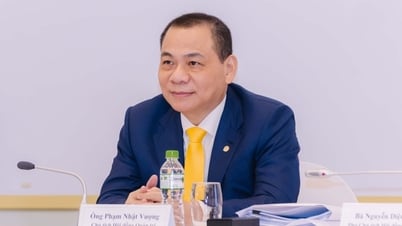


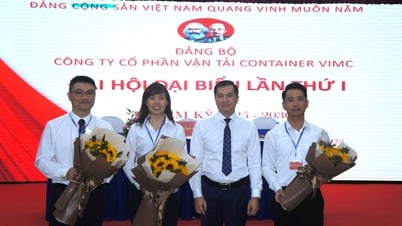






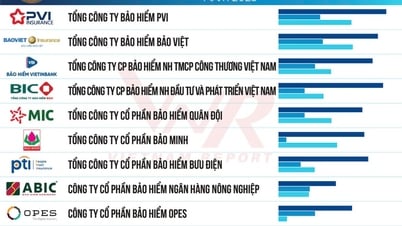



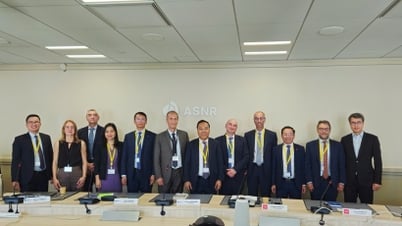

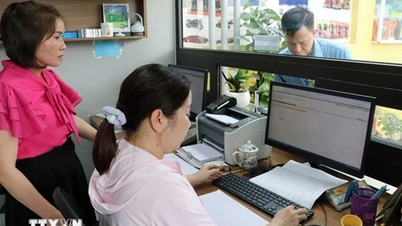














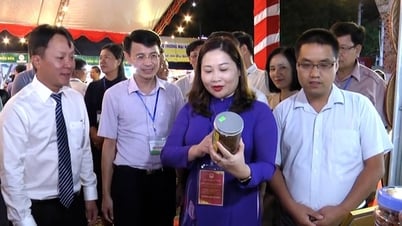





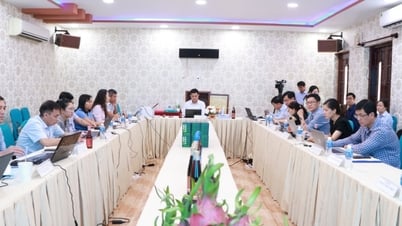










Comment (0)